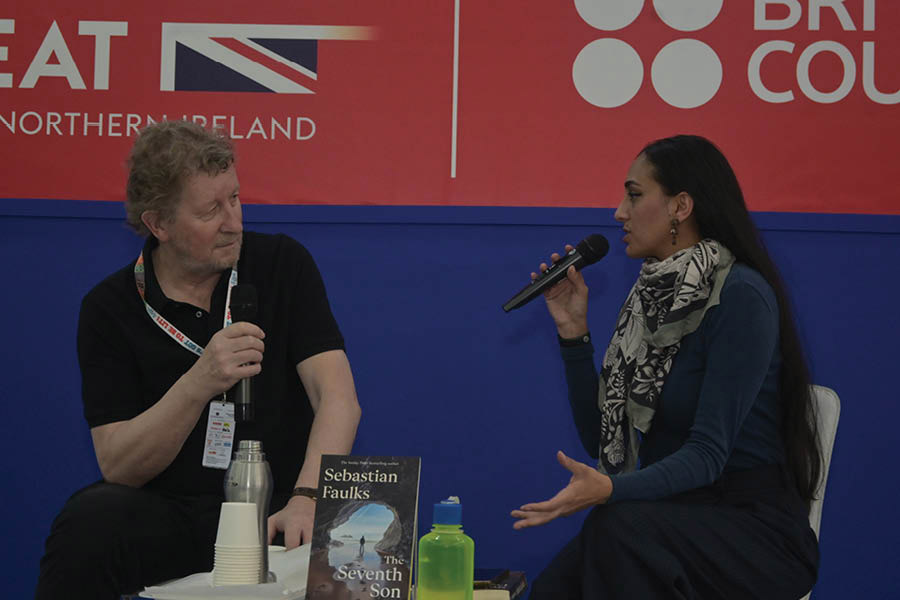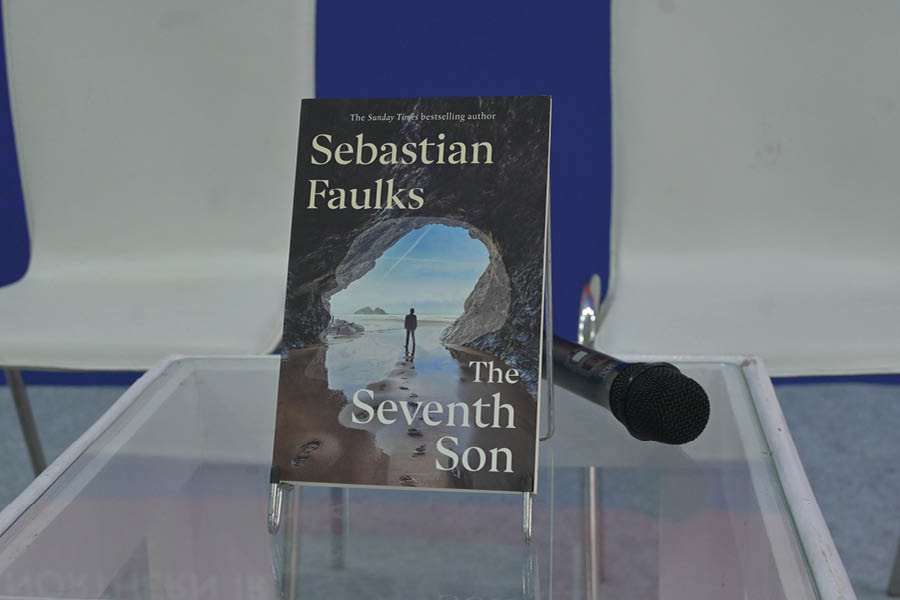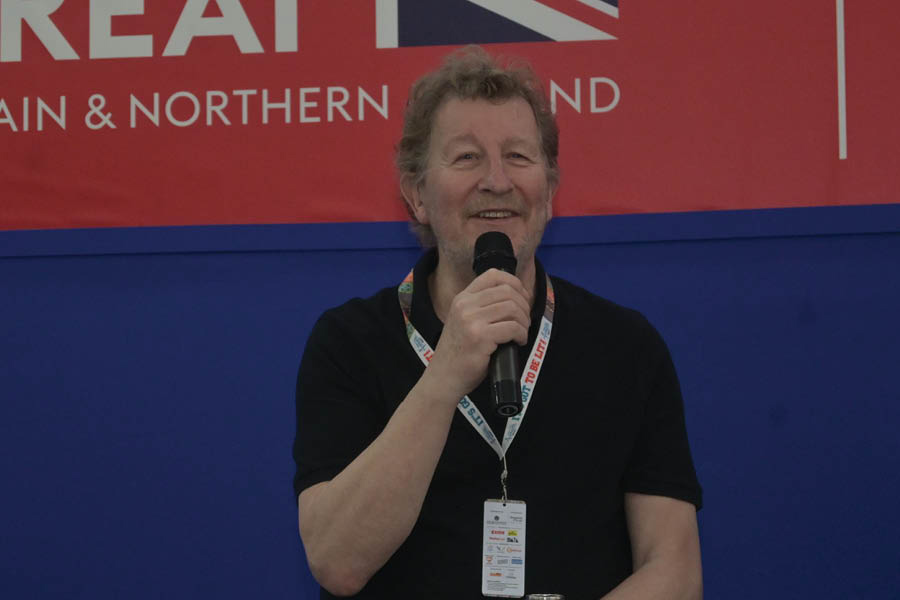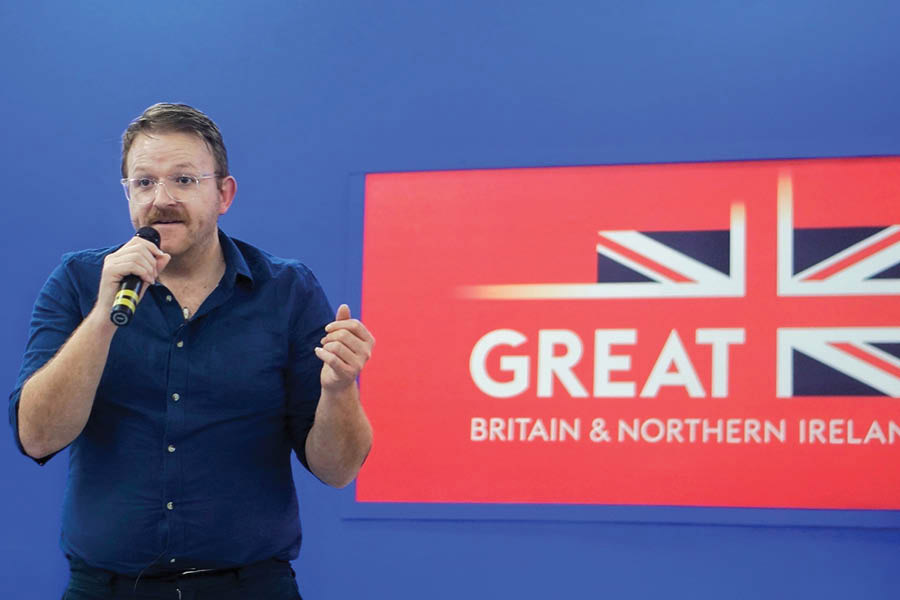Few authors can strike the balance between critical admiration and popular appeal with as much ease and consistency as Sebastian Faulks, best known for his so-called French trilogy — The Girl at the Lion d’Or, Birdsong and Charlotte Gray. The ongoing International Kolkata Book Fair saw the award-winning British novelist talk about his latest book, The Seventh Son, in conversation with Kolkata-based author Karuna Ezara Parikh, at the UK pavilion on January 24.
The chat was part of British Council’s attempt to build connections between the UK and India.
Faulks worked as a journalist before choosing to become a full-time writer. He has also delved into contemporary writing as evident from Paris Echo and A Week in December. Faulks has been writing for 50 years and publishing for 40. The Seventh Son was published in September 2023 and is available for sale online as well as at the Penguin stall of the Book Fair.
‘What is it that actually makes us human?’

Faulks in conversation with Karuna Ezara Parikh
The story of The Seventh Son revolves around genetics — it is about a child with a parent who is not a biological human. The mystery unfolds keeping in mind the question of identity against a bigger background, “in the context of genes”, as Faulks said. In this age of rapid technological advancement, it is often confusing to have clarity on one’s own identity. Mobile phones have taken over almost every aspect of life, meaning the focus has shifted more towards outward appearance than what is on the inside, suggested Faulks, as he held up his mobile phone and smirked. Parikh agreed to the statement and admitted asking herself a similar question while reading the book: “What is it that actually makes us human?”
“The book is neither about science fiction nor historical fiction, it is just set in a particular time period,” said Faulks about his book, which “begins in the 2030s and ends in 2055”. Not a fan of labels and genres, Faulks is of the belief that “writing can just be writing”. “Writing is a very big commitment in itself and once the writer is enjoying the process, the reader can also feel those emotions, “ explained Faulks. The Seventh Son mentions a lot about the human brain and how it functions. The author had to research from quite a few biology books for a better understanding of his subject matter.
How Faulks understands the future

‘The Seventh Son’ shares an important connection with another of Faulks’s books called ‘A Possible Life’
An interesting observation from Parikh brought to light how one of Faulks’s earlier books, called A Possible Life, has a character who is a scientist by profession and is involved with a theory — the same theory that appears in the The Seventh Son. “I find this intertextuality so interesting! I Googled this theory, which appears in the book. And then I Googled the name of the scientist he (Faulks) mentions in the book to see if she existed, only to find out that she existed in one of his other novels. Now I am going to read that book, too,” narrated Parikh.
Faulks went on to question why anything which is remotely futuristic has to be seen through the lens of dystopia. He clarified that even though his story is set in the future, not every assumption about the future has to be a dystopian thought. “Every time anyone has a book set in the future, most journalists say it’s dystopian. Utopia means a good place and dystopia means a bad place. But the future, as I’ve described it in my book, is not a bad place. It’s not dystopian, but it’s not utopian either, it’s just life,” concluded Faulks.



